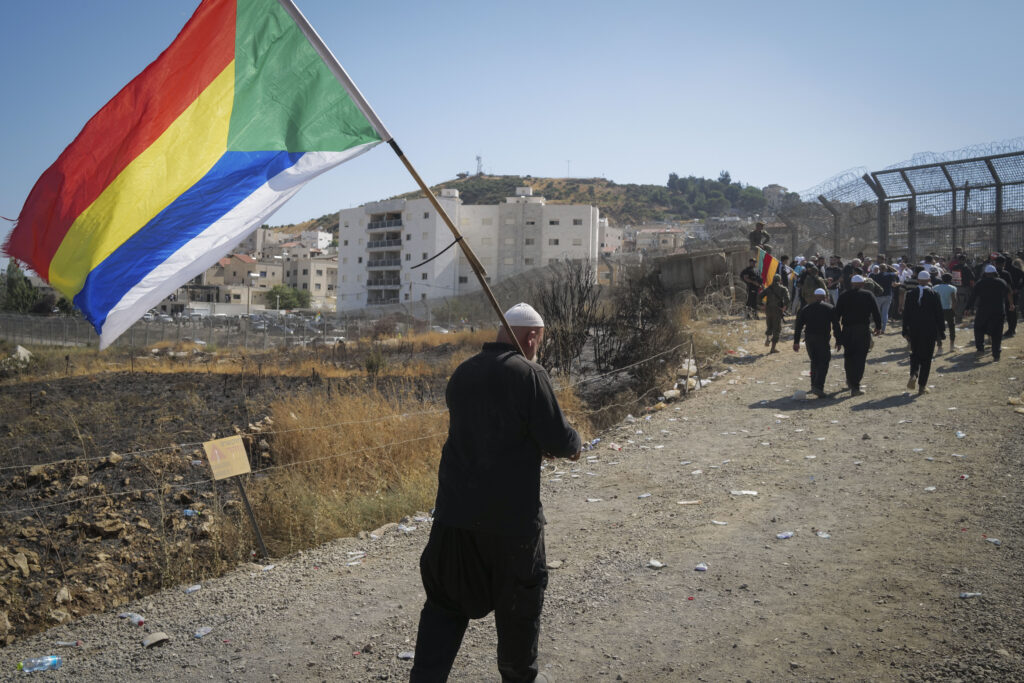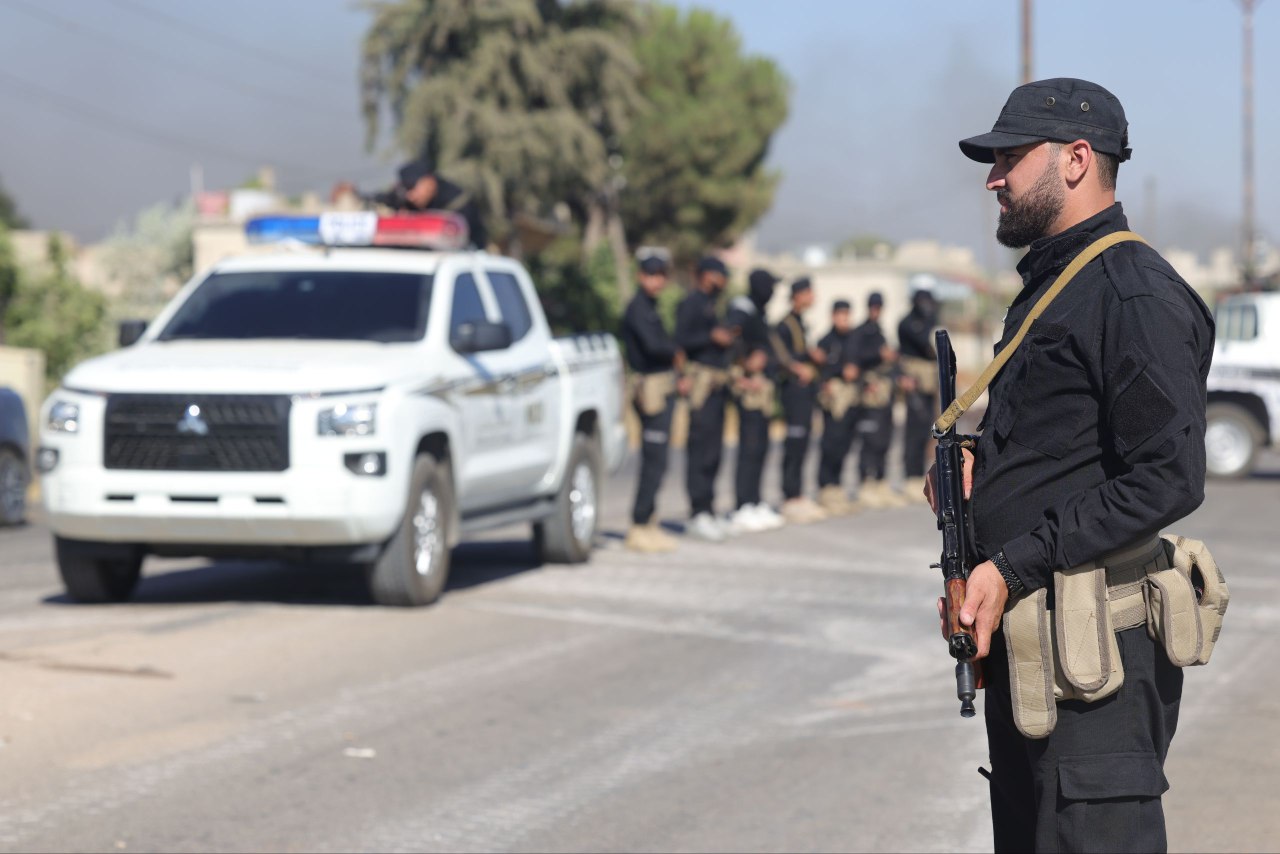A horrifying massacre has shocked the Christian and Druze communities in southern Syria, as Pastor Khalid Mezher of the “Good Shepherd Evangelical Church” in Suwayda was tortured to death along with nearly twenty members of his family — his parents, siblings, and their children — in a targeted attack marked by unimaginable brutality. Mezher, a convert to Christianity from the Druze faith, had long served his war-ravaged community with devotion and compassion. His murder, which local sources say was carried out by Islamist extremists, is part of a wider, largely unreported genocide engulfing Syria’s religious minorities.
The killings took place amid a wave of violence explicitly targeting Christians and Druze. Just days earlier, leaflets had been found on church doors in Suwayda and Damascus calling for jihad against Christians — urging the beheading of “cross-worshippers,” the rape of Christian women, and the plundering of Christian homes. The atrocity followed another deadly attack at the Mar Elias Church in Damascus, where dozens of Orthodox Christians were killed and wounded. The silence from international bodies has been deafening.
Despite the official announcement of a ceasefire, Suwayda — a city of 150,000 people in southern Syria — remains under relentless bombardment. The city, which has both a Druze majority and a significant Christian minority, has endured ten days of siege, with no humanitarian relief and no respite from the shelling. While Syrian government officials and foreign diplomats tout a ceasefire, locals report that missile strikes and executions continue unabated.
Over 1,000 Syrians — most of them Druze and Christian — have been killed in recent weeks. The Syrian Observatory for Human Rights reports that at least 1,120 people have died in Sweida Province alone. Among them are 427 Druze fighters, 298 Druze civilians, and at least 194 civilians who were summarily executed by regime forces without trial. Sunni Bedouin militias, aligned with government or jihadist factions, have also been implicated in the violence, with at least three Bedouin civilians reportedly executed by Druze militias in retaliation.
In stark contrast to the world’s silence, Israel has acted decisively. In response to urgent appeals from its own Druze citizens and leaders, Israel delivered a shipment of humanitarian aid, including critical medical supplies, into Syria’s Sweida district on Sunday night. The operation was carried out in close coordination with American officials, who then notified Syrian authorities. The aid comes as Sweida’s main hospital lies in ruins, destroyed in the fighting.
Health Minister Uriel Buso convened an emergency meeting on Shabbat to greenlight the aid, declaring: “Our brotherhood with the Druze community is well known, but beyond that, we are committed to a ‘covenant of life.’ We cannot stand idly by when members of the community — inside or outside Israel — are in danger.”
Foreign Minister Gideon Sa’ar followed up with an emergency aid package worth nearly $600,000, including food parcels, first aid kits, and medicines. Additional shipments are already being prepared as the situation on the ground deteriorates.
The Israel Defense Forces (IDF) have also fortified the border with Syria in the Golan Heights to prevent mass infiltration attempts by Druze civilians seeking refuge or attempting to join their families in the conflict zone. The IDF has set up concrete barriers, barbed wire, and checkpoints, and deployed reinforcements along the border. Most Israelis who briefly crossed into Syria have now returned, and no Syrian civilians remain inside Israel, according to official sources.
Israeli airstrikes have targeted Syrian military convoys advancing toward Sweida, with Israeli officials stating that the strikes were carried out to “prevent the Syrian regime from harming the Druze community” and to secure the Israeli border.
Meanwhile, the international response has been tepid at best. Jordan has refused to open a humanitarian corridor to Syria despite repeated pleas. The spiritual leadership of Syria’s Druze community has issued public appeals for international protection and for the enforcement of the ceasefire that local militias and government forces continue to violate.
Even worse, some actors are exploiting the crisis for political gain. Turkish President Recep Tayyip Erdoğan has condemned Israel’s aid to the Druze as “banditry,” accusing the Jewish state of using the crisis to expand its influence. Erdoğan’s remarks ring hollow coming from a leader who supported Syrian jihadist factions during the country’s civil war and who now seeks to dominate Syria’s post-war reconstruction.
The silence of the United Nations and major human rights organizations has raised difficult questions. Why is the targeted killing of Christian and Druze civilians being downplayed or ignored? Why are massacres like that of Pastor Khalid Mezher and his family not making global headlines?

This is not just a Syrian crisis — it is a moral crisis for the international community. As evil parades openly in the streets of Suwayda and Damascus, only Israel has stepped up to act, driven by a bond of shared humanity and the call of conscience. For Israel’s Christian supporters in the U.S. and around the world, this moment is a stark reminder of the Jewish state’s indispensable role as a beacon of moral clarity in a region plagued by darkness.
Pastor Mezher’s martyrdom will not be forgotten — nor will the brutal campaign against Christians and Druze in Syria. And if the world remains silent, then it is up to people of faith, truth, and courage to raise their voices.





